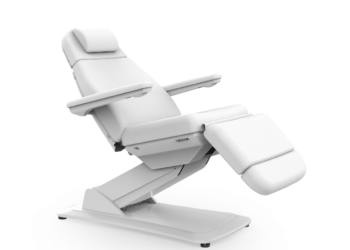Addiction is a powerful and often devastating force that can take over your life, affecting your physical health, mental well-being, relationships, and overall quality of life. Breaking free from the grip of addiction is not easy, but it is possible with the right approach and support. Whether you’re struggling with substance abuse, gambling, or another form of addiction, there are proven strategies that can help you reclaim control and rebuild your life. In this blog post, we will explore six essential tips to help you defeat your addiction and embark on the path to recovery.
Learn About Addiction
Understanding addiction is a critical step in the recovery journey. Addiction is a complex condition that affects the brain and behavior, making it challenging to overcome without proper knowledge and support. So, learning about addiction as a start helps you comprehend its root causes, the impact it has on your life, and the various treatment options available. By educating yourself, you can better identify the signs of addiction, recognize triggers, and develop effective coping strategies. This knowledge empowers you to make informed decisions about your recovery, seek appropriate help, and support others facing similar struggles. The more you understand addiction, the better equipped you will be to tackle it head-on and achieve lasting recovery.
Acknowledge the Problem
The first and most crucial step in overcoming addiction is acknowledging that you have a problem. Denial can be a significant barrier to recovery, preventing you from seeking the help you need. Recognizing the impact of addiction on your life and the lives of those around you is essential. This acknowledgement can be painful, but it is a vital step towards recovery. Accepting that you need to change is the foundation upon which all other recovery efforts are built.
Seek Professional Help
Once you acknowledge the problem, the next step is to seek professional help. Addiction is a complex condition that often requires medical and psychological intervention. Professionals can provide the necessary support and treatment to help you overcome your addiction. This may include therapy, counselling, medication, or a combination of these approaches. Addiction specialists are trained to address both the physical and psychological aspects of addiction, offering personalized care that caters to your specific needs. Reaching out to addiction specialists can provide you with tailored strategies and a structured plan to navigate the challenges of recovery. They can also connect you with support groups and resources, ensuring you have a comprehensive support system throughout your recovery journey. Seeking professional help is a crucial step towards achieving lasting recovery.
Build a Support Network
Having a strong support network is crucial when trying to overcome addiction. Surround yourself with friends, family, and support groups who understand your struggles and can offer encouragement and accountability. Joining a support group, such as Alcoholics Anonymous (AA) or Narcotics Anonymous (NA), can connect you with others who are experiencing similar challenges. These relationships can provide a sense of community and understanding, which is invaluable during the recovery process. Leaning on your support network can help you stay motivated and committed to your recovery goals.
Develop Healthy Coping Mechanisms
Addiction often stems from using substances or behaviours to cope with stress, anxiety, or other emotional difficulties. Developing healthy coping mechanisms is essential to replacing addictive behaviours with positive, constructive habits. This might include exercise, meditation, hobbies, or other activities that bring you joy and relaxation. Identifying and addressing the underlying causes of your addiction can help you develop more effective and healthier ways to cope with life’s challenges. Engaging in regular physical activity can alleviate stress and boost your mood, while mindfulness practices like meditation can enhance your emotional resilience. Pursuing hobbies and interests can provide a sense of purpose and fulfilment. By incorporating these positive coping strategies into your daily routine, you can reduce the urge to resort to addictive behaviours and foster long-term recovery.
Set Realistic Goals
Setting realistic and achievable goals is an important part of the recovery process. These goals can help you measure your progress and stay focused on your recovery journey. Start with small, manageable goals that build your confidence and gradually work towards larger, long-term objectives. Celebrate your achievements, no matter how small they may seem. This positive reinforcement can motivate you to continue making progress. Setting and achieving goals provides a sense of accomplishment and reinforces your commitment to recovery.

Overcoming addiction is a difficult but achievable goal. By acknowledging the problem, seeking professional help, building a support network, developing healthy coping mechanisms, setting realistic goals, and staying committed and patient, you can defeat your addiction and reclaim your life. Remember, you are not alone in this journey. There is help available, and with determination and support, you can overcome addiction and create a healthier, happier future.







